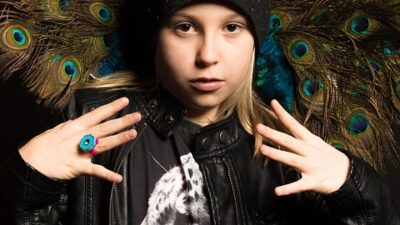Since its release in 2017, Fortnite has transcended its status as a mere video game to become a cultural phenomenon that has significantly influenced the gaming landscape. With its blend of vibrant graphics, engaging gameplay mechanics, and social connectivity, Fortnite has not only captivated millions of players worldwide but has also reshaped gaming communities and culture.
A New Era of Battle Royale
Fortnite popularized the battle royale genre, setting the stage for other games to follow suit. While titles like PlayerUnknown’s Battlegrounds (PUBG) laid the groundwork, Fortnite brought a unique flair with its cartoonish visuals and building mechanics. The game’s accessibility and its free-to-play model made it appealing to a broader audience, inviting not only hardcore gamers but also casual players and newcomers.
Building a Diverse Community
One of Fortnite’s most notable impacts is its ability to foster a diverse and inclusive community. Players of all ages, backgrounds, and skills come together in this vibrant digital world. The in-game events, such as concerts and collaborations with major franchises, have created shared experiences that further unite players. In-game social spaces allow friends to gather, forge connections, and even engage in creative projects together, making Fortnite a platform for social interaction rather than just competition.
Cultural Crossovers
Fortnite is perhaps best known for its unique collaborations with various franchises, celebrities, and brands. From concerts by global superstars like Travis Scott and Ariana Grande to crossovers with iconic franchises such as Marvel and Star Wars, Fortnite has embraced the idea of blending gaming with mainstream culture. These events not only enhance gameplay but also draw attention from outside the gaming community, enticing newcomers and creating substantial media buzz.
The Rise of Influencers and Content Creators
Fortnite’s dynamic gameplay and engaging content have made it a breeding ground for influencers and content creators. Streamers on platforms like Twitch and YouTube have gained massive followings by showcasing their gameplay, strategies, and creative content. This rise of gaming influencers has created a new wave of entertainment, offering fans a way to engage with their favorite players and celebrate shared interests. The game’s emotes and dances have transcended the screen, becoming viral phenomena across social media platforms, further embedding Fortnite into popular culture.
Evolving Youth Culture
Fortnite has also had a profound impact on youth culture. The game’s language, aesthetics, and social norms have permeated everyday conversations, with terms like "Victory Royale" and various in-game dances becoming part of the youth lexicon. Additionally, in a world where virtual interaction often takes precedence over physical interaction, Fortnite serves as both a social connector and a means of self-expression for many young players.
Challenges and Controversies
Despite its successes, Fortnite has not been without its challenges. Issues like screen time addiction, cyberbullying, and concerns about in-game purchases have sparked conversations about the responsibilities of developers towards young audiences. While many celebrate Fortnite’s inclusive nature, the potential for a toxic environment and the pressure to keep up with trends pose significant challenges that the community continues to navigate.
Conclusion
Fortnite has redefined not only how we perceive video games but also the very nature of community and culture within the gaming space. Its influence goes beyond gameplay; it’s a cultural touchstone that connects different generations and backgrounds. As it continues to evolve, both as a game and as a cultural phenomenon, Fortnite serves as a testament to the power of interactive entertainment in shaping social experiences. The future of gaming may very well hinge on the lessons learned from Fortnite’s journey in building community and the lasting impact it has left on our culture.



